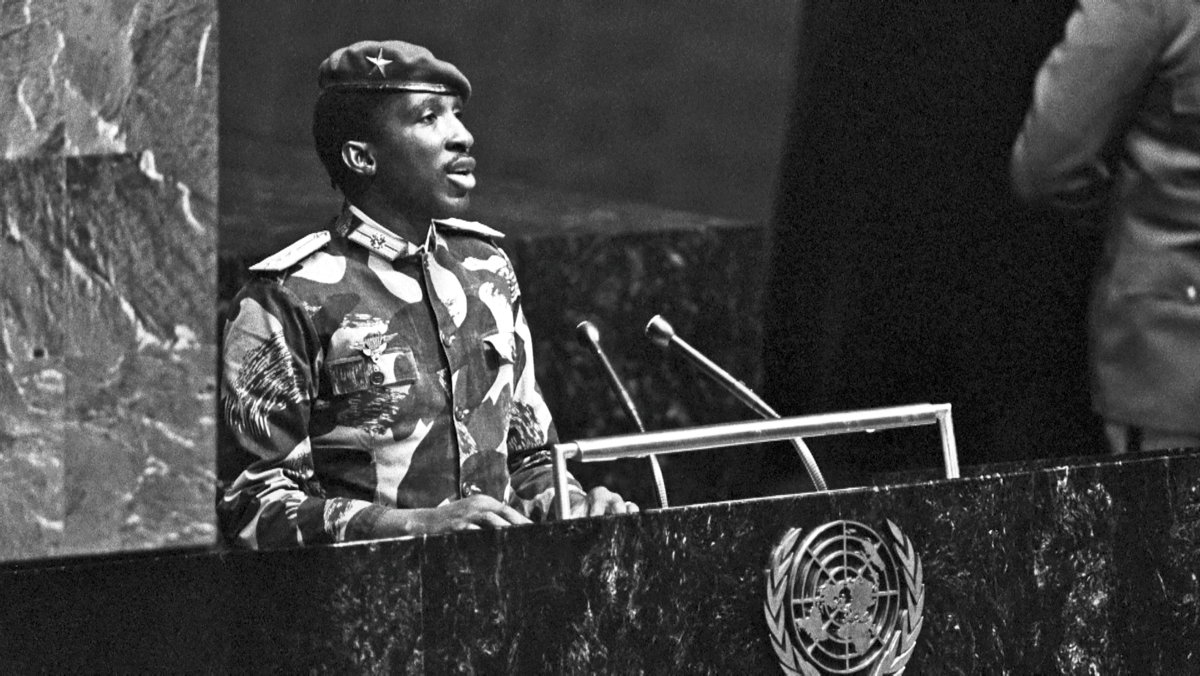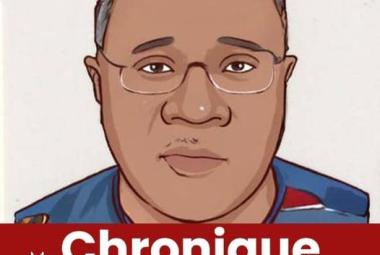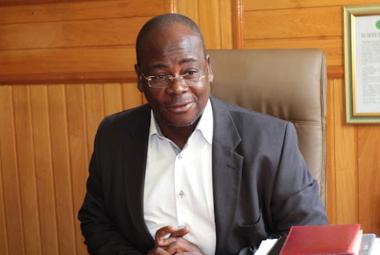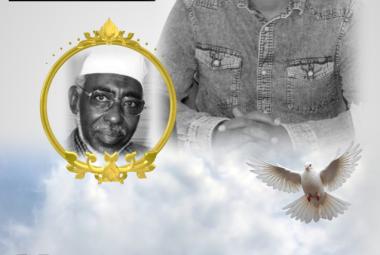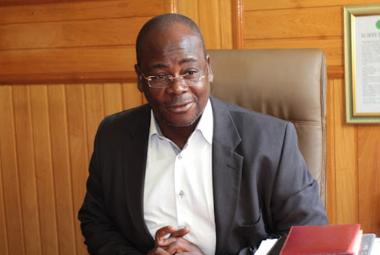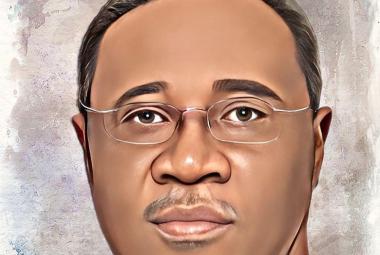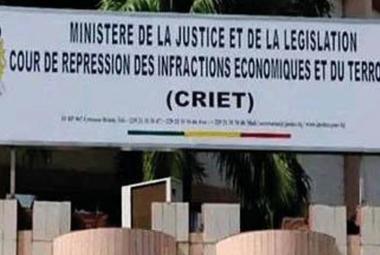

“We will search in vain from the concepts of Negritude or “African personality” now marked by the times, for truly new ideas from the brains of our “great” intellectuals. Vocabulary and ideas come to us from elsewhere. Our professors, our engineers and our economists are content to add colors because, from the European universities of which they are the products, they have often only brought back their diplomas and the velvet of adjectives or superlatives”. So said the late President Thomas Sankara in his speech of October 4, 1984 before the 39th session of the United Nations General Assembly in New York. Wasn't that true and isn't it still true today? And since then, what has really changed in Africa? We are even forced to seek foreign mercenaries in order to come and ensure the security of the lands of our Ancestors. These same lands whose mineral resources the whole world envies. If not the height of some indignity, it really looks like it.
Following Captain Ibrahim Traoré's coup, the Publishing Director of Jeune Afrique, Marwane Ben Yahmed, wrote very nicely: "If those who know and appreciate Burkina can only despair, we now find it more and more difficult to nickname "the country of honest men", it also illustrates a fundamental trend not to be taken lightly and which is spreading like wildfire: the desperate quest for sovereignty, the unquenchable thirst for independence and the visceral rejection of the former colonial power, France in this case”.
For those who knew Burkina Faso and Burkinabè, it is amazing to see how much the Country and the People have changed in just a few years. So much so that we fall from the clouds when we see the number of clever and quick Burkinabè now to change jackets and language at the speed of light. Including some media yet so quick to criticize others outside the borders, with vitriol if necessary and rightly moreover, but to cower or almost flatten or even fly away in the dithyramb when it is the Princes who govern them...
Followers of shortcuts and other simplistic comparisons for the purposes of equally grotesque and effective manipulations quickly seized on the tutelary and emblematic figure of Thomas Sankara, the Revolutionary and the Pan-Africanist. Then, they quickly make amalgams that suit them or that suit what they want to sell to African and international public opinion. And, they were quick to summon and summon so-called “New Sankara” or Thomas Sankara-like. It doesn't matter if all this is far-fetched, as long as African and international public opinion sees similarities through this great smokeout and that the strategy works. The main thing is to mislead all those whom ignorance of history is enough to enlist and manipulate. Undoubtedly for personal interests. But by swearing in the name of the interests of the youth of an entire continent. With Pan-Africanism, Sovereignty, Independence, Fake News and tutti quanti... We can therefore go and shout from all the rooftops that there are deceptions on the comparisons made here and there between certain soldiers who have come to power in recent years in Africa and Captain Thomas Sankara. That is.
Whether we like it or not, what today makes most of the pride of all the people of Burkina Faso and the brand image of Burkina Faso outside its borders, is quite simply the heritage bequeathed by a one man, one leader, in this case Captain Thomas Sankara. If you remove Thomas Sankara from the history of post-independent Burkina Faso, there wouldn't be much left. Certainly a bit of political bickering, a lot of coups d'Etat, and nothing or almost nothing for the people. Many chimeras and many miseries.
On closer inspection, it is not only in Burkina Faso that Thomas Sankara bequeathed his vision of audacity and hope, but rather to all of Africa. Never has any other leader of this continent, before him, aroused so much admiration and respect. What is most impressive, for a politician, is that all this admiration was not overrated. With the help of time, with the years that have passed, we can only better realize this.
Some Africans on the continent or in the Diaspora believe or pretend to be more African or Pan-African than others to the point of playing Russian agents against the geopolitical excesses of the West in general and of France in particular in Black Africa. But they are wrong to want to replace “FrançAfrique” with “RussAfrique” or “WgnerAfrique”. They would do better to dissociate their commitment to Africa from their propensity to present Russia as the savior of poor Africans martyred by the West or France. Africa would gain a lot from this, instead of them continuing to get bogged down in a convoluted and anachronistic approach that cannot convince well-thought-out minds.
However open to criticism the West's policy in Africa may be, it cannot be put on the same scale as that of Russia. And even less Vladimir Putin's Russia. We can argue about this. No offense to the pro-Russian Africans. Better, let's do some political fiction. I am not sure and certain that if Captain Thomas Sankara was still alive and in power in the context of the international geopolitical crisis that our world is currently experiencing, he would have chosen to ally with Russia in this case in the face of the invasion of Ukraine. Because Captain Thomas Sankara was a free and independent man who had at heart the defense of the sovereignty of small nations against the great powers. He was an ardent defender of the weakest against the strongest by propensity, without however being unconditional or dogmatic. He was above all an intelligent and well-thought-out man, who committed himself only in his soul and conscience, refusing to be influenced by anyone, and whatever his power... In almost all the languages of the world, we will find, in several forms, this adage that Suzy Kassem expressed well by saying: "Stand up for what is right, regradless of who is committing the wrong". Thomas Sankara were among those for whom this adage took on its full meaning in his political commitment. Even if I am not Mariam Sankara, his wife, or one of his brothers or sisters, I can affirm it based on the psychology of the character. The testimonies of his parents, his speeches, the study of the character and especially the fact of having very early followed the socio-political news of Burkina Faso since the beginning of the 80s are enough for me to say that anti-imperialism or Captain-President Thomas Sankara's anti-colonialism was not dogmatic. And his spirit of independence was not tinged with hatred of the other, as we can suspect in the speeches of the "New Pan-Africanists" who flood social networks. Otherwise Captain Blaise Compaoré would never have had time to conceive his coup d'Etat and a fortiori to execute it.
Having frequented, and this for a long time, Mr. Joseph Sankara and his wife, that is to say the parents of Thomas Sankara, I can without false modesty advance on this ground. Indeed, from our frequent meetings and my exchanges with the parents of the late President Thomas Sankara throughout my stays in Ouagadougou, I came away with even more admiration and respect for the latter. More than my bookish knowledge of him had let me consider. He was not perfect, he was a human being, with his qualities and his faults, and for sure more qualities than faults and extremely rare qualities in a human being: integrity, the fight against injustice in all its forms, and above all the gift of oneself for the general interest.
If there is one thing that is sure and certain, it is that since October 15, 1987 - the date of his assassination - (Captain Blaise Compaoré is his killer, I wrote it in his time and it angered him, and I will always write it), Captain Thomas Sankara must have turned over a thousand and one times in his grave. And, looking from where he has been since, what the Burkinabè have done with his "Burkina Faso", he should be constantly raging and turning around. Worse: Burkina Faso may have continued to call itself that, is it still really the "country of honest men" that Captain Thomas Sankara bequeathed to his compatriots and to all of Africa? We can answer it definitively in the negative with regard to what is happening today in this country. By the combined fault of its politicians and its Army.
Thomas Sankara would certainly have had the courage of honor to tell Vladimir Putin, "the new Tsar of Russia", that he is not in his right to invade Ukraine and he would have alone, if need be, marched behind the flag of the reprobate. Contrary to the deafening silence that we have witnessed so far from African countries after the invasion of Ukraine by Russia. And this was one of the trademarks of the singularity of Man, beyond his charisma and his intelligence. Sovereignty is this: deciding in one's soul and conscience without being a follower, because for various reasons, it is the choice or the temptation of the greatest number.
It is in the sense of this same independence and this freedom of tone and spirit that we knew him that we must understand not only the policy of Thomas Sankara as President of Burkina Faso but also his own personality. And he didn't like to take the floor just to discourse or make rhetoric. He matched the deed to the word. Without having to force to attract the sympathy or antipathy of each other. Let us remember that he was the only one to row against the tide of his peers to make his speech in Addis Ababa, Ethiopia, which will remain the most memorable of all.
On July 29, 1987, Captain Thomas Sankara, President of Burkina Faso had his strong and just deaths which will resonate for a long time to come in the minds of Africans and in relations between Africa and the rest of the world. From the rostrum of the 25th Conference of OAU Member Countries in Addis Ababa, Ethiopia, he said of African debt:
“Mr. President: We listened and applauded the Prime Minister of Norway when she spoke here. She said, she who is European, that not all the debt can be repaid. I would simply like to complete it and say that the debt cannot be repaid. Debt can't be repaid because first if we don't pay, our backers won't die. Let's be sure. On the other hand, if we pay, we are the ones who will die. Let's also be sure. Those who drove us into debt played like in the casino. As long as they won, there was no debate. Now that they are losing at the game, they demand reimbursement from us. And we are talking about a crisis. No, Mr. President, they played, they lost, that's the rule of the game. And life goes on. [Applause] We can't repay the debt because we don't have money to pay. We cannot repay the debt because we are not responsible for the debt. We cannot pay the debt because, on the contrary, others owe us what the greatest wealth will never be able to pay, that is to say the debt of blood. It is our blood that has been shed. We are talking about the Marshall Plan which remade economic Europe. But we are not talking about the African Plan which enabled Europe to face the Hitlerite hordes when their economies were threatened, their stability was threatened. Who saved Europe? It's Africa. We talk about it very little."
Captain Thomas Sankara was not a populist, far from it! He was not towed by the Soviet Union, or China, or Cuba, or any country or anyone. He was in tow of his people, of whom he was aware of their deep aspirations and the gigantic changes that had to be made within them. And if he couldn't say "No" to Muammar Gaddafi in his time, even when many other heads of state were just waiting for his largesse, it's because he also had a high awareness of freedom to think and act which was to be his.
The "Captain-People", as he was nicknamed or Captain-President Thomas Sankara, does not resemble any of the putschists currently in power in Africa. Let it be taken for granted! And that we therefore stop, for a thousand and one reasons, in particular inherent in the sycophancy intended to flatter the ego of certain leaders, to make incongruous and tasteless analogies with Thomas Sankara. He had not taken power under the inspiration of any foreign power or thanks to a security crisis where the Army uses coups as a headlong rush, and even less to take advantage of them. He had a career behind him and the interest of his people in the first place well pegged to the body. And if he had been wrong to stage a coup, posterity would never have inscribed his name in letters of gold in the annals of the History of Africa and the World. To the point of making him still today the only politician in Africa, a soldier and this is not the least of the disadvantages, to symbolize a certain idea of an Africa upright, free and which dares not only to believe but above all invent. Inventing was one of the things that made Thomas Sankara unique.
Some colleagues and some public figures have even gone too far in their comparison to equate Captain Ibrahim Traoré with Captain Thomas Sankara. With the exception of age, rank, accession to power by a coup d'Etat and belonging to the same country, the comparison stops there. Brutally! Please, let Captain Thomas Sankara rest in peace. For the fight that was his, he deserves a lot of respect. And get it in mind from now on that Thomas Sankara is not the one who wants. It is born, perhaps, a man of this species per century. And even!...
The Basque writer Fernando Aramburu described very well the kind of person Thomas Sankara was in his article entitled ¿Qué es carisma? in the newspaper El País. Translated from Spanish in Courrier International and published on November 12, 2022 at 05:00 a.m. under the title La pilule philosophique. Le charisme, on l’a ou on ne l’a pas (The philosophical pill. The charisma, we have it or we do not have it), Fernando Aramburu underlined that: “The ancient Greek first then the Latin had already noticed it: certain individuals are distinguished by a very particular power of seduction. Whatever they do, whatever they say, their mere presence is a source of well-being. Failing to understand their cunning, the hypothesis was advanced that these blessed had received a favor from the gods, a “charisma”.
The word lives on today, in various spellings, in a multitude of languages. Unfortunately, charisma is not something that can be ordered. In the same way, one cannot be beautiful, quick, or intelligent just by the force of the will. In general, the charismatic himself does not wonder when or how this gift of magnetism came to him, or on what this incredible talent is based to press the right key on the great social keyboard at all times.
Charisma, like García Lorca's “duende” [complex notion of Spanish culture, which can sometimes be attributed to the “genius” of Andalusia and flamenco], we have it or we don't have it: you can climb a lamppost and throw yourself into a bulería [festive flamenco song with palmas, clapping of hands], if the good flamenco fairy has not leaned over your cradle, you will never bewitch the neighborhood".
Today, everyone calls themselves Pan-Africanist or Sankarist, without being able to say what is meant by this or that, the slightest sacrifice or to observe the most elementary exemplary conduct or action that this commitment implies. Everyone talks about Thomas Sankara and his precepts that they make their own. And even the most inveterate and bloodthirsty Dictators say that they are only applying what Thomas Sankara had already said.
The late President Thomas Sankara of Burkina Faso was a true Pan-Africanist. A unique man of his kind. He left us a heavy legacy that transcends Burkina Faso alone to be that of all of Africa like the Kwame N'Krumah among many of his illustrious predecessors. Nothing else to those who mouth the trumpet to sing this refrain than a superficial and ephemeral glory, the ransom of populism, and which always ends up turning against its authors when the choir that follows them will have understood everything.
By Marcus Boni Teiga



